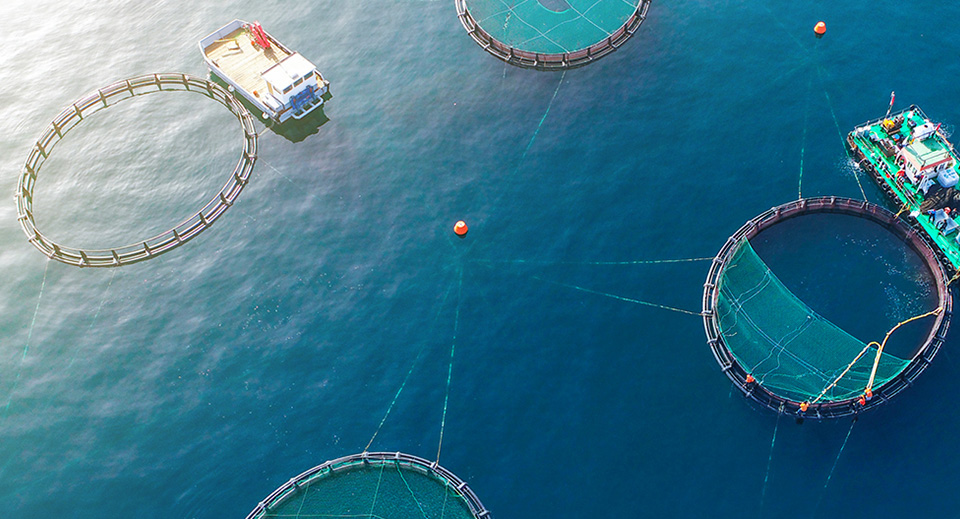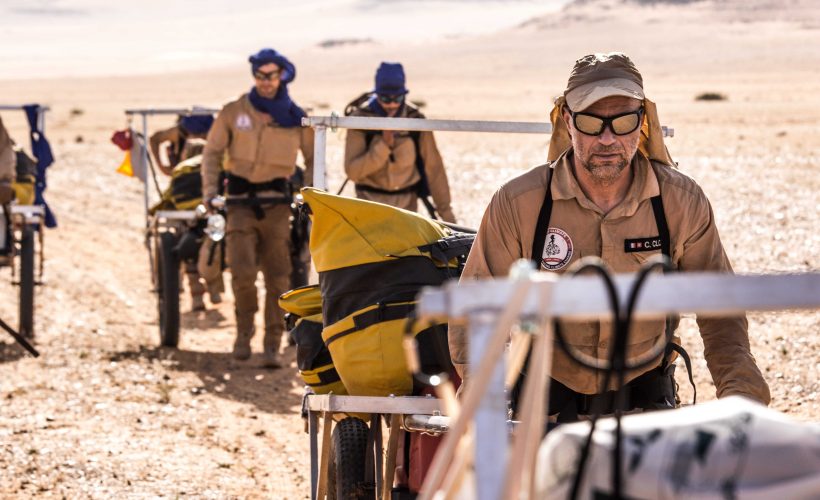Tech & Business
1.31.2022
In the United Arab Emirates, fishing at the cutting edge of technology

A predominantly desert country, the United Arab Emirates is showing technological creativity in the field of aquaculture, motivated by various challenges, among which preservation of ecosystems and population growth occupy a prominent place.
On the occasion of the Saudi International Marine Exhibition and Conference (SIMEC), the UAE Minister of Climate Change and Environment, Maryam Almheiri, urged Abu Dhabi‘s investment in infrastructure for the development of the aquaculture sector. She particularly emphasized the role of technology in unlocking its potential and the UAE’s forward thinking in sustainable development.
Although it is difficult to imagine environmental conditions more unfavorable to aquaculture than in the UAE, where desert dominates three quarters of the territory and fresh water is scarce, Abu Dhabi has nevertheless partnered closely with the Food and Agriculture Organization of the United Nations (FAO) in the field of fish farming around an ambitious development project. The Emirates aim not only to make aquaculture more energy efficient but also to offer it a more viable dimension in economic terms. This comes at a time when demand for fish and interest in local production is growing in the country.
Innovative technologies for sustainable aquaculture
Modern technology, in this sense, is the key to sustainable UAE aquaculture production. It should rapidly enable the country to supply fish and improve its food security. The FAO has estimated that the availability of freshwater has decreased by two thirds in the Near East and will continue to fall, reaching a further 50% by 2050.
However, specialists have found innovative solutions for fish farming, including water recycling systems that not only conserve precious fresh water but also create ideal conditions for fish farming. And this, even in a desert environment! Computer monitoring systems are also mobilized to continuously monitor water temperature, quality and oxygen levels. As a result, local production of organic Atlantic salmon, grouper, sea bass and caviar could reach 30,000 tons per month by 2030.

Production of phytoplankton to feed the farm’s fish. ©FAO/FameMedia
An ecological and profitable project
The UAE’s global strategy includes numerous initiatives to promote resilient agricultural practices that combine productivity and ecosystem preservation. For example, the unprecedented integration of solar energy production with aquaculture makes Emirates a regional leader in the pursuit of sustainable development goals.

Emirate Fish Farm technicians collect fish larvae ©FAO/FameMedia
The UAE’s initiatives are also having an impact on social welfare by providing employment opportunities in the sector for its young population.
”Technical agriculture requires great technical skills. We need to invest in training the younger generation and this is one of the government’s goals,”
Thus, through the development of a blue agri-food system, the UAE has the opportunity to meet local needs as well as share its expertise with the rest of the world.
”FAO is working with the government to make the UAE a global hub for agricultural technology and innovation,”
popular

